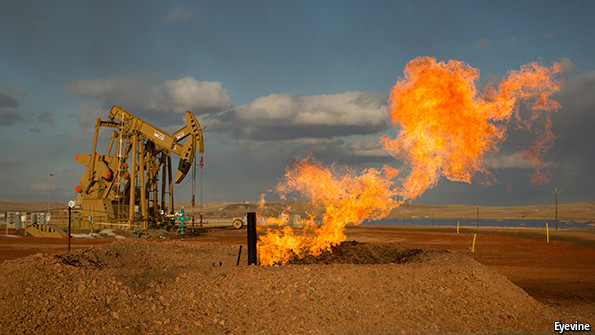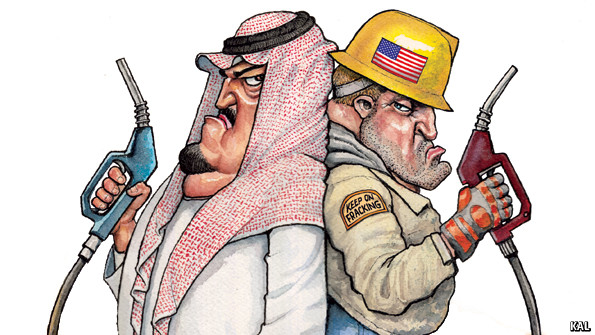 Furthermore, this event will impact negatively on the risky and vulnerable areas of the industry including the American oil producers who use the fracking technique and have borrowed heavily because of the expectation that the price of oil will continue to rise. It also includes Western oil companies with expensive projects such as drilling in the Arctic.
Furthermore, this event will impact negatively on the risky and vulnerable areas of the industry including the American oil producers who use the fracking technique and have borrowed heavily because of the expectation that the price of oil will continue to rise. It also includes Western oil companies with expensive projects such as drilling in the Arctic.However on the whole, the falling oil prices will have the most significant effect on countries that are very dependent on high oil prices to fund social programmes and foreign endeavours. These include Russia and Iran. The situation in Russia is made worse by sanctions imposed by the West for its meddling in the Ukraine and Iran has to fund the Assad regime in Syria.
 There are several reasons for this. Just like any other good, the price of oil is determined by the forces of demand and supply. The demand for oil is low because of declining economic activity, increased efficiency and a rising tendency to switch to other fuels, which are substitutes for oil. Low demand results in a decrease in the price. Besides that, fracking has boosted America's oil output by two-thirds in just four years. This means that it now imports much less, leading to spare supply. In addition, Saudi Arabia and their Gulf allies have refused to limit supply to increase the prices because they want to retain their market share. Also, cutting the supply would benefit countries they detest such as Russia and Iran. The Saudis are able to cope with low oil prices because they have $900 billion in reserves while the cost of producing oil is low at around $5-6 per barrel.
There are several reasons for this. Just like any other good, the price of oil is determined by the forces of demand and supply. The demand for oil is low because of declining economic activity, increased efficiency and a rising tendency to switch to other fuels, which are substitutes for oil. Low demand results in a decrease in the price. Besides that, fracking has boosted America's oil output by two-thirds in just four years. This means that it now imports much less, leading to spare supply. In addition, Saudi Arabia and their Gulf allies have refused to limit supply to increase the prices because they want to retain their market share. Also, cutting the supply would benefit countries they detest such as Russia and Iran. The Saudis are able to cope with low oil prices because they have $900 billion in reserves while the cost of producing oil is low at around $5-6 per barrel.
No comments:
Post a Comment